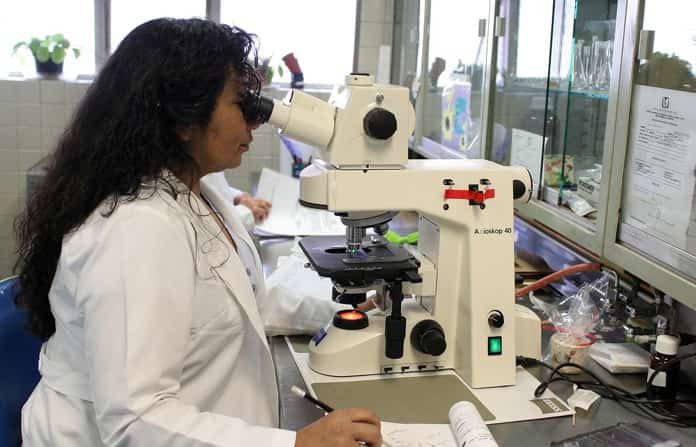In a recent study, Dutch researchers investigated whether there is a link between tumour gene activity and responsiveness to chemotherapy in patients with metastatic breast cancer.
Due to the diverse nature of metastatic breast cancers (in which cancerous cells have spread to other parts of the body and may have mutated further), it is difficult to predict which patients will benefit from various chemotherapy regimens. General patterns in tumour characteristics and gene activity do exist, however, and exploring how these factors influence a patient’s response to a given chemotherapy may provide insight into its ability to treat different types of metastatic breast cancer.
In a recent study published in BMC Cancer, researchers investigated whether there is a link between gene activity in the original tumour and response to chemotherapy in patients with metastatic breast cancer. The medical information of Dutch patients with metastatic breast cancer who had received treatment with hormonal therapy, chemotherapy, or both were obtained. Chemotherapy regimens were classified as anthracycline-containing, taxane-containing, or other.
Responses to chemotherapy were classified as complete (total disappearance of tumours) or partial (some tumour disappearance or shrinkage) responses, or as having a stable (no real change) or progressive (increased tumour size or number) disease state. Patients experiencing complete or partial responses to chemotherapy were considered responsive, and those with stable or progressive disease were considered non-responsive.
When samples of the original tumour (as opposed to subsequent, metastatic tumours) were available, the tumour’s genes were analyzed. Tumours were classified according to their molecular characteristics as basal, HER2-like, luminal A, or luminal B, and according to their patterns of gene activity as likely or unlikely to respond to chemotherapy.
Patient Characteristics
Of the 263 patients in the study, there were 118 for whom original tumour samples were available. Twenty-one of these patients were given hormonal therapy prior to chemotherapy for the original tumor. A further 39 received chemotherapy alone, 15 received hormonal therapy alone and 44 received combination therapy.
Response to Chemotherapy
Forty-two percent of patients were responsive to first-line chemotherapies and 22% of patients to second-line chemotherapies. No associations were found between responsiveness to chemotherapy and the original tumour’s behaviour or molecular characteristics.
Gene Activity
Of the 14 genes found to be significantly different between responders and non-responders to first-line chemotherapy, 3 had reduced activity and 11 had increased activity in responders. This 14-gene responder profile was then tested for its predictive value. Of those who received any chemotherapy for metastatic breast cancer, 33 of 43 with the responder gene profile were responsive to chemotherapy, and 42 out of 46 without the responder profile were non-responsive. For second-line chemotherapies, 9 of 37 with the responder profile were responsive and 22 of 27 without the responder profile were non-responsive. Original tumours with the responder profile also tended to generate metastases later than those without.
Conclusions
This was the first study to demonstrate the relationship between the gene expression profiles of the primary tumours and their chemotherapy response. The study findings suggest that the 14-gene profile identified may predict a patient’s response to chemotherapy for the treatment of metastatic breast cancer.
As the profile was both generated from and tested against the tumours of the study subjects, these findings will have to be verified with testing in other study populations. Though no associations were found between the molecular classifications and the broad chemotherapy groups studied, research into the ability of the responder gene profile to predict responsiveness to other chemotherapy groups or to specific chemotherapeutics may still hold promise.
Written by Raishard Haynes, MBS
Reference: Savci-Heijink, C.D. et al. (2017). Association between gene expression profile of the primary tumor and chemotherapy response of metastatic breast cancer. BMC Cancer. DOI 10.1186/s12885-017-3691-9



